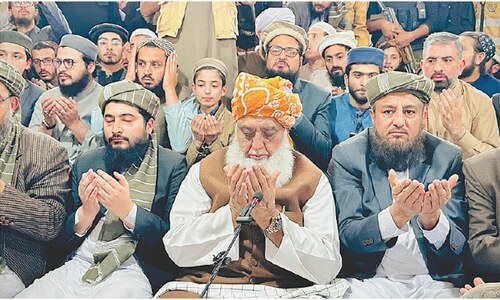At a gathering at Darul Uloom Haqqania in Akora Khattak, Maulana Fazlur Rahman, leader of the Jamiat Ulema-e-Islam-Fazl (JUI-F), stated that killing fellow Muslims cannot be considered jihad. He emphasized that any aggression against fellow Muslims should not be viewed as such. He also referred to a fatwa issued by religious scholars from Pakistan and Afghanistan, seemingly alluding to an edict by Afghan Taliban leader Hibatullah Akhundzada, which declared cross-border attacks, including those on Pakistan, as “haram” (forbidden).
Maulana Fazl further advised students not to let contradictions pollute their minds and expressed confidence that the current phase of militancy would eventually pass. He asserted that religious scholars and seminaries would continue to uphold the true essence of religion during these turbulent times.
Darul Uloom Haqqania, established in 1947, is one of Pakistan’s prominent Islamic seminaries. It has earned the nickname “University of Jihad” due to its historical association with producing alumni who have taken active roles in various militant movements, including leading figures of the Afghan Taliban.
This development is noteworthy, especially considering the JUI-F’s historical ties to militant groups. The party has faced internal divisions over its stance on jihad and its relationship with the Taliban, with some factions criticizing the leadership for moving away from supporting militant activities. These internal debates highlight the complexities within Pakistan’s religious and political landscape regarding the concept of jihad and the role of religious seminaries.







